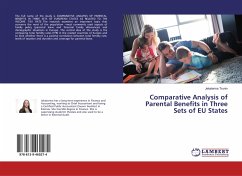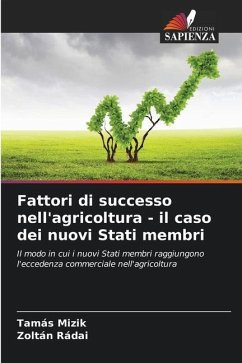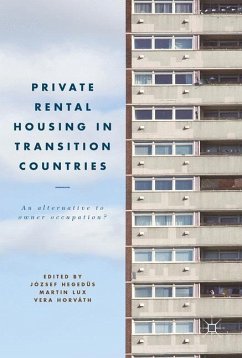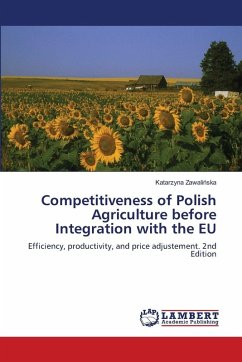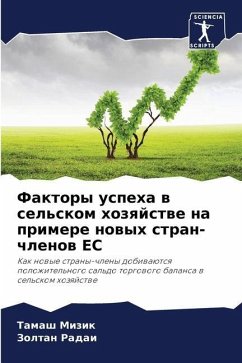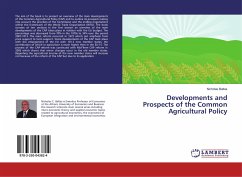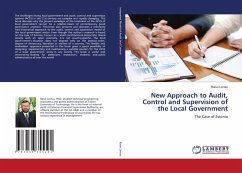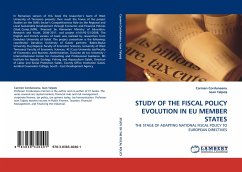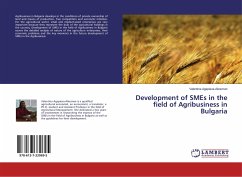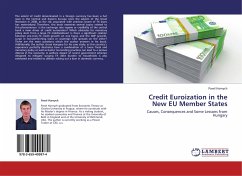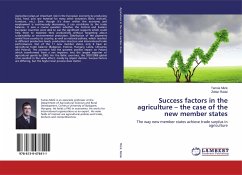
Success factors in the agriculture - the case of the new member states
The way new member states achieve trade surplus in agriculture
Versandkostenfrei!
Versandfertig in 6-10 Tagen
36,99 €
inkl. MwSt.

PAYBACK Punkte
18 °P sammeln!
Agriculture plays an important role in the European economy by producing food, feed, and raw material for many other industries (fibre, biofuels, furniture, etc.). Even though it's share within the economy and employment is continuously decreasing, it can contribute to the trade balance. It was a crucial question whether the Central and Eastern European countries were able to use the significant supports which could help them to maximise their productivity without forgetting about sustainability or environmental protection. Distribution of the payments varied from country to country, as well a...
Agriculture plays an important role in the European economy by producing food, feed, and raw material for many other industries (fibre, biofuels, furniture, etc.). Even though it's share within the economy and employment is continuously decreasing, it can contribute to the trade balance. It was a crucial question whether the Central and Eastern European countries were able to use the significant supports which could help them to maximise their productivity without forgetting about sustainability or environmental protection. Distribution of the payments varied from country to country, as well as national policies, which resulted in different production levels, production structure and international trade performances. Out of the 11 new member states, only 6 have an agricultural trade balance (Bulgarian, Estonia, Hungary, Latvia, Lithuania and Poland). The accession had the greatest positive impact on Poland which transformed from a net importer, into the largest exporter of agricultural goods by 2005. For the Baltic countries, the 2007/2008 global crisis resulted in the same effect, mostly by import decline. Success factors are differing, but the higher level process does matter.



